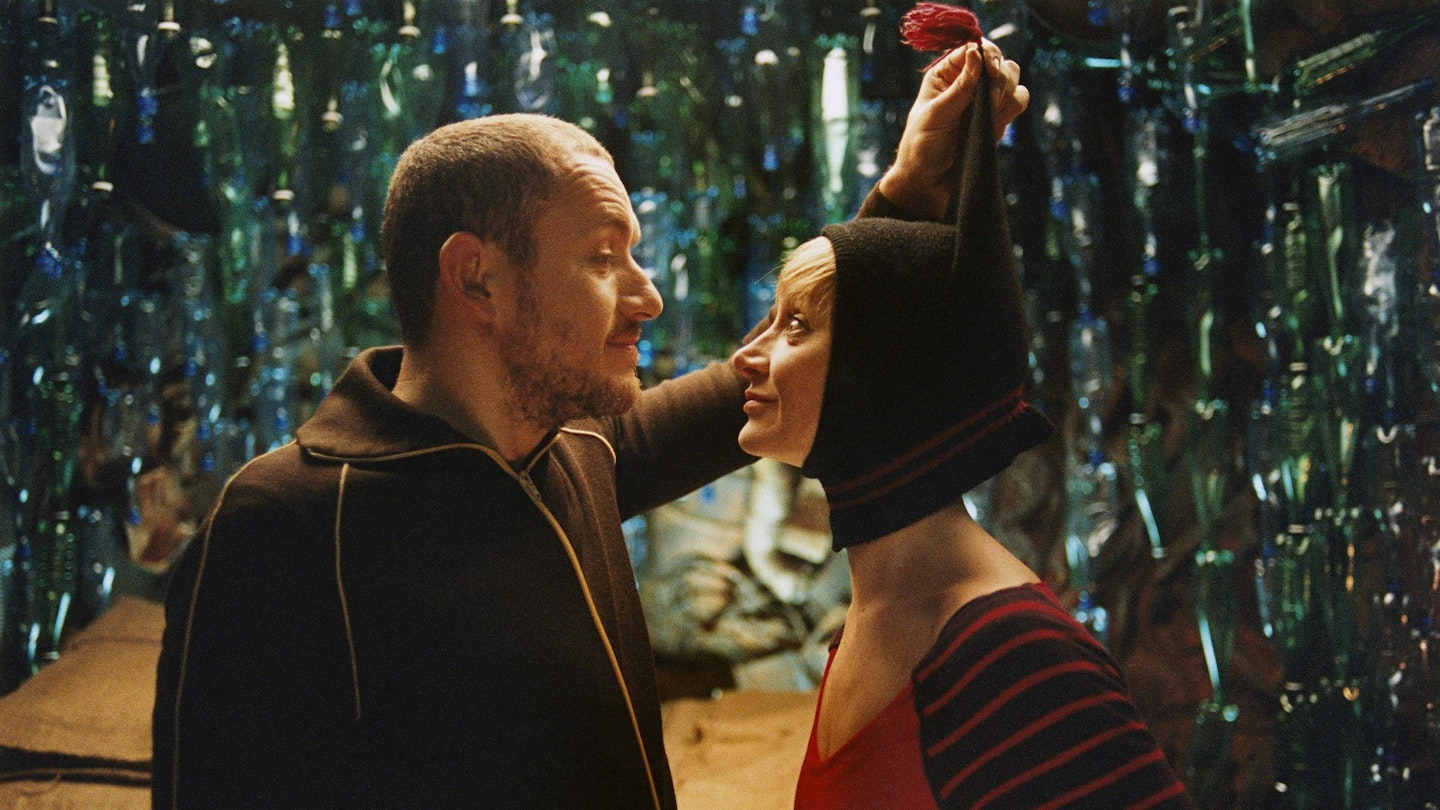With one notable exception (yes, the one with the melted-Dairylea alien-thing), Jean-Pierre Jeunet’s films are rich, textured and enjoyably eccentric affairs, and have deservedly earned him favourable comparisons with the likes of Gilliam and Burton. But Jeunet’s style and vision, which reached its apogee in Amélie, offers more consistent results than either of those filmmakers (helped, naturally, by the fact that he’s made fewer pictures). While you could dismiss him as an acquired taste, he’s also a director whose passion for cinema hones his visual mastery. His movies — like those of the Coens, and Tarantino, even — take place in worlds whose lifeforms evolved from Keaton and Pickford rather than slime-moulds and lungfish, in universes created by the puffing of the Lumières’ locomotive rather than a Big Bang.
This has never been more apparent than in Micmacs (or Micmacs À Tire-Larigot, to use its full, none-more-Gallic title), which is so steeped in cinema that it steals Chaplin’s antics, Kurosawa’s plots (Yojimbo and Seven Samurai lurk around every corner) and Max Steiner’s score for The Big Sleep. Jeunet, ever unafraid to namecheck his inspirations, has also stated that Snow White And The Seven Dwarfs, Toy Story and the Mission: Impossible TV series feed into his tale of placid manchild Bazil’s (Dany Boon) quest to take on the arms manufacturers who robbed him of his father via a landmine, then created the bullet that remains lodged in his brain and may possibly send him to his maker at any moment.
Reluctantly enlisting the aid of a band of oddball destitutes — a tiny, mechanical-sculpture-crafting old man with the strength of five Geoff Capes; a semi-autistic Amélie clone who can calculate anything in seconds; a petulant female contortionist who sleeps in the fridge etc. — the plot pinballs zanily around Bazil’s elaborate plan to deal poetic justice to this pair of arms dealers.
The result plays out like Amélie’s little life-improving schemes, albeit with a revenge motive and a team of conspirators. Lacking the vast resources of their quarry (whose richness is so atrocious it most grossly manifests itself in one dealer’s penchant for collecting embalmed body parts of expired historical figures), Bazil and co. prove to be genius improvisers — in one case performing a daring heist with a household alarm clock, a human cannonball and a goldfish bowl full of wasps.
It’s impressively inventive and entertainingly convoluted stuff, like a brilliant low-rent sideshow that’s bluffed its way into becoming the main attraction. But while virtually every frame creaks with inspiration, you can’t help but come away feeling there’s something missing. Perhaps it’s to do with being so conditioned to expect a pay-off for every set-up. The extensive film-referencing comes, to a great degree, out of the fact that the pre-brainwound Bazil is a movie nut. We are encouraged to believe we’re actually seeing the world through his mind-damaged perception. In one scene, for example, an entire orchestra is revealed behind Bazil, playing the score. He slaps his head irritably and they disappear in a blink. Which raises the question, further encouraged by the character beginning the main plot in a coma: how much of what we’re watching is really happening? And that, sadly, is all it remains: a question.
A more significant issue is Bazil himself. Whereas Amélie had at its heart a lovable, luminous brunette imp, here we have a large, blank-faced man of few words. And he’s nowhere near as engaging. Dany Boon is a big deal in his homeland, being a massively successful one-man show, and creator of France’s biggest homegrown box-office hit (Bienvenue Chez Les Ch’tis), so maybe if you’re French — and more specifically Jeunet, looking for someone to cast after the person for whom you wrote the lead role (Jamel Debbouze) pulled out — Boon’s charisma is self-evident. But it has yet to travel. We get that Bazil is shellshocked, but it does rather seem like Boon’s coasting, or at least failing to find the heart of his character while he’s too busy playing on the surface: the studied look of disinterest, the slouch, the shrugs, the by-the-numbers Chaplin-imitation. You may not be surprised to find that Boon started out as a mime.
Not that this derails the Jeunet Express. It retains its own rusting-clockwork charm, and while it may not bring in many newcomers, those already won over by Delicatessen, The City Of Lost Children and Amélie (and they are legion) won’t regret their return.

